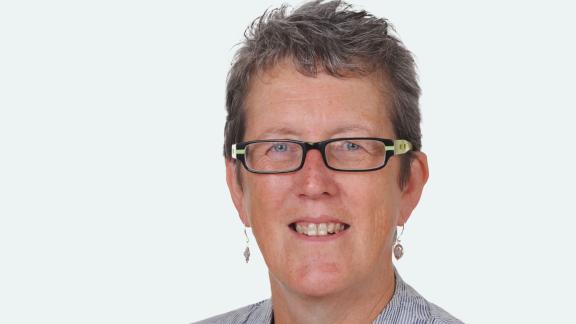Time to stand up and be counted

‘We all have worked in a deafening silence for too long’, writes Dr Kathy McLean on the need to take a stand and eradicate inappropriate sexual behaviours in the NHS.
The NHS Sexual Safety Charter is more than just a charter – it represents a needed fundamental shift of behaviours within the NHS. We have all no doubt seen the published research regarding the level of inappropriate sexual behaviour happening in our NHS, specifically surgical departments, over the last five years.
Shocking statistics include more than 40 per cent of women reported receiving uninvited comments about their body from colleagues; 29 per cent claimed to have experienced unwanted physical advances; and 38 per cent said they endured sexual ‘banter’ at work. But let’s be clear, this issue is not just found in our surgical teams. This will be an issue in many departments across the NHS and these are behaviours I for one have witnessed and/or experienced.
Have we not shouted loudly enough?
But it is more than this. Underpinning the statistics is a fundamental problem with how women are viewed by their gender first and not by their profession. Some behaviours are frankly unacceptable at best and at worst, illegal. I can’t believe that, in 2023, we are still having to raise this as an issue – and I can't help but think why? Have we not shouted loudly enough about this? Have organisations and managers taken concerns or issues seriously enough? Is it that we are blamed or stigmatised if bad behaviour is highlighted? Are we confident that the perpetrators will be dealt with properly? Or have we sadly normalised such behaviour so that we just expect it? Well, whatever it is, it is now time to stand up and be counted.
I would guess that there are very, very few women who have not experienced or witnessed inappropriate behaviours in their lifetime. That’s, in the main, your grandmother, mother, sister, daughter. It also can be your brother, father, son and grandfather and other family members, and it is important to remember this – but it is also me, too.
My personal experience
I have worked for 40 years, starting as a trainee doctor, then a consultant, and more latterly as a board member.
... I naively assumed that any career progression would be based on merit only. Sadly, this was very far from the truth
In the 1980s, at the start of my career, the hierarchy was male dominated and I understood, at the time, that I was entering a world where it was acknowledged it would be tough to progress in a career to become a consultant. However, I naively assumed that any career progression would be based on merit only. Sadly, this was very far from the truth. I observed that getting the next job seemed too often perceived as being dependent on sleeping with the consultant.
This created a culture where comments about women's appearances became accepted and it was the norm to expect women to be 'available' to senior male colleagues.
I had hoped that with the increase in women in senior medical, and to some extent surgical roles, this culture would have changed. It is deeply disturbing and saddening to see this is not the case
Some male surgical trainees and consultants developed a reputation for sexual relationships with junior trainees, almost as a badge of honour. Commonly, unacceptable 'jokes' at the expense of women would be part of the conversation, with no thought about how embarrassing this could be. I had hoped that with the increase in women in senior medical, and to some extent surgical roles, this culture would have changed. It is deeply disturbing and saddening to see this is not the case.
Time for change to happen
We know that kindness and compassion within teams and treating each as equals leads to safer patient care
We enter medicine to care for patients and that is a career-long commitment. The culture we do this in makes a huge difference to patient care and outcomes. We know that kindness and compassion within teams and treating each as equals leads to safer patient care. Over my long career I have witnessed many examples of great behaviour and excellent teams working together to make a difference for patients.
But we all know change needs to happen and no organisation is immune to the deep-rooted problems highlighted. Therefore I call upon all NHS boards to ensure their organisation signs the NHS Sexual Safety Charter and take action to eradicate, once and for all, this unacceptable behaviour so that our current and future workforce can work secure in the knowledge that they are safe.
I appreciate this is my story and is just one of many to be told. As I reflect on my role in leadership, I am ashamed to say I feel I have largely ignored these issues. But I also recognise that we all have worked in a deafening silence for too long on this issue. No more. We all need to take action. Walking passively by is not an option anymore.
Dr Kathy McLean is a member of the Health and Care Women Leaders Network guiding group. You can follow Kathy on Twitter at @KathyMcLean13



